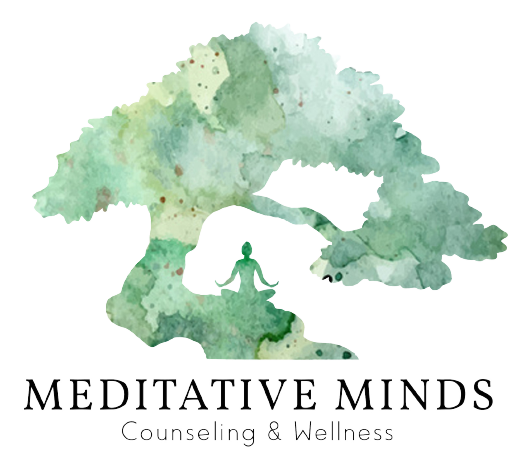Living with a chronic illness can be a challenging journey that extends beyond the physical symptoms. The emotional and psychological toll of managing a chronic condition often goes unnoticed but is equally significant. Coping with the uncertainty, limitations, and changes in lifestyle can trigger a range of emotions, from frustration and anger to sadness and anxiety. In the midst of medical treatments and symptom management, addressing the emotional well-being of individuals with chronic illness is paramount. Therapy offers a supportive and therapeutic space where individuals can explore and process their feelings, develop coping strategies, and regain a sense of control over their lives. In this blog, we’ll delve into the importance of therapy for chronic illness, exploring how it helps individuals manage the emotional and psychological impact of their condition, ultimately improving their overall quality of life.
Overcoming Mental Health Challenges Associated with Chronic Illness

Living with a chronic illness presents a multitude of challenges, not only on a physical level but also on a mental and emotional one. One significant aspect that often goes unnoticed is the impact it has on mental health. The emotional toll of managing a chronic illness can be immense, leading to feelings of isolation, depression, anxiety, and even exacerbating existing mental health conditions. However, despite the prevalence and severity of mental health challenges among individuals with chronic illnesses, there still exists a pervasive stigma surrounding mental health within this community. This stigma can manifest in various ways, from feeling ashamed or embarrassed to seek help for mental health issues, to facing judgment and discrimination from others who may not understand the complexities of living with both physical and mental health conditions.
Normalization of Emotions
Therapy provides individuals with chronic illnesses the opportunity to normalize their emotions and experiences. By interacting with a therapist who understands the unique challenges they face, individuals can feel validated in their emotions and realize that they are not alone in their struggles.
Education and Awareness
Therapists can help individuals understand the intersection between chronic illness and mental health, providing education and awareness about how one can impact the other. This knowledge can empower individuals to recognize the signs of mental health issues and seek help when needed.
Validation of Self-Worth
Chronic illness can often lead to feelings of inadequacy or worthlessness, but therapy can help individuals recognize and validate their self-worth beyond their illness. Therapists can help clients identify their strengths, accomplishments, and values, fostering a sense of pride and self-acceptance.
Development of Coping Strategies
Therapy equips individuals with chronic illnesses with practical coping strategies to manage their mental health challenges effectively. Whether through cognitive-behavioral techniques, mindfulness practices, or relaxation exercises, therapists work collaboratively with clients to develop personalized coping mechanisms.
Strengthening Mental Health in the Face of Physical Challenges

Living with a chronic illness presents a myriad of physical challenges that can profoundly impact mental health. From managing symptoms to navigating treatment regimens, the daily realities of life with a chronic condition can take a toll on emotional well-being. However, despite these challenges, many individuals with chronic illnesses demonstrate remarkable resilience in coping with their circumstances. Building resilience— the ability to bounce back from adversity and thrive in the face of challenges— is essential for maintaining mental health amidst physical struggles. In this article, we explore how therapy can play a pivotal role in strengthening resilience and promoting mental well-being for individuals living with chronic illness.
- Understanding the Intersection of Physical and Mental Health: Therapy provides a space for individuals to explore the complex interplay between their physical and mental health. By gaining insight into how their chronic illness impacts their emotions, thoughts, and behaviors, individuals can develop a deeper understanding of their experiences and learn to navigate them more effectively.
- Coping with Uncertainty: Chronic illness often brings uncertainty about the future, including prognosis, treatment outcomes, and daily functioning. Therapy offers tools and techniques for managing uncertainty, such as mindfulness practices and cognitive restructuring, empowering individuals to embrace the present moment and cultivate a sense of acceptance and peace amidst the unknown.
- Fostering Adaptability: Resilience involves the ability to adapt to changing circumstances and bounce back from setbacks. In therapy, individuals can explore adaptive coping strategies that allow them to adjust to the challenges of living with a chronic illness. This may include reframing negative beliefs, setting realistic goals, and developing flexible problem-solving skills.
- Promoting Self-Compassion: Living with a chronic illness can evoke feelings of self-blame, inadequacy, and shame. Therapy encourages individuals to practice self-compassion— treating oneself with kindness, understanding, and acceptance. Through self-compassion exercises and guided reflection, individuals can cultivate a sense of warmth and gentleness towards themselves, fostering resilience in the face of self-criticism.
- Building Social Support: Strong social support networks are essential for resilience in the face of chronic illness. Therapy provides a platform for individuals to explore and strengthen their social support systems, whether through connecting with loved ones, joining support groups, or seeking professional help. By fostering meaningful connections and nurturing supportive relationships, individuals can bolster their resilience and cope more effectively with their condition.
Embracing Kindness in the Midst of Struggle
Living with a chronic illness often entails facing numerous challenges, both physical and emotional. From managing symptoms to coping with limitations, the journey can be incredibly demanding. In the midst of such struggles, it’s easy for individuals to be hard on themselves, engaging in self-criticism and judgment. However, cultivating self-compassion— the practice of treating oneself with kindness, understanding, and acceptance— can be a powerful antidote to the harshness of self-criticism. In this article, we delve into the importance of self-compassion for individuals living with chronic illness and explore how therapy can facilitate its cultivation.
Understanding Self-Compassion
Self-compassion involves extending the same kindness and empathy to oneself that one would offer to a friend in times of suffering. It comprises three core components: self-kindness, common humanity, and mindfulness. Self-kindness entails being gentle and understanding with oneself rather than harsh and critical. Common humanity recognizes that suffering is a shared human experience, fostering a sense of connection and belonging. Mindfulness involves being present with one’s experiences without judgment, allowing for greater emotional balance and resilience.
Challenging Self-Criticism
Living with a chronic illness can often give rise to self-critical thoughts and beliefs. Individuals may blame themselves for their condition, feel inadequate for not being able to “overcome” it, or judge themselves for needing help or accommodations. Therapy provides a supportive space for individuals to explore and challenge these self-critical patterns, cultivating self-compassion as an alternative way of relating to oneself.
Practicing Self-Kindness
Therapy offers practical tools and exercises for practicing self-kindness on a daily basis. This may include self-soothing techniques, self-care rituals, or affirmations of self-worth. Through consistent practice, individuals can gradually shift towards a more compassionate and nurturing relationship with themselves, counteracting the harshness of self-criticism.
Embracing Imperfection
Chronic illness can disrupt one’s sense of identity and perfectionism, leading to feelings of inadequacy or failure. Therapy encourages individuals to embrace their imperfections and limitations with kindness and acceptance. By reframing setbacks as opportunities for growth and learning, individuals can cultivate resilience and self-compassion in the face of adversity.
Acknowledging Emotional Pain
Therapy provides a safe space for individuals to acknowledge and validate their emotional pain without judgment. By allowing themselves to feel and express their emotions, individuals can cultivate self-compassion as a response to suffering. Therapists offer empathy, validation, and support, fostering a sense of acceptance and understanding that promotes healing and emotional growth.
Conclusion
Maintaining a clean and organized home is not only essential for physical health but also plays a crucial role in promoting mental well-being and tranquility, particularly for busy residents of Libertyville. By implementing practical cleaning routines tailored to their hectic schedules, individuals can transform their living spaces from chaos to calm, providing a sanctuary for relaxation and rejuvenation amidst the demands of daily life. With consistency, prioritization, and perhaps a helping hand from community resources like So Clean Schaumburg, residents can navigate the challenges of managing both their physical and emotional health with greater ease and resilience. So Clean Schaumburg, with its dedication to providing professional cleaning services, serves as a valuable ally in helping individuals achieve and maintain a clean and healthy home environment, ultimately contributing to their overall well-being and happiness.


